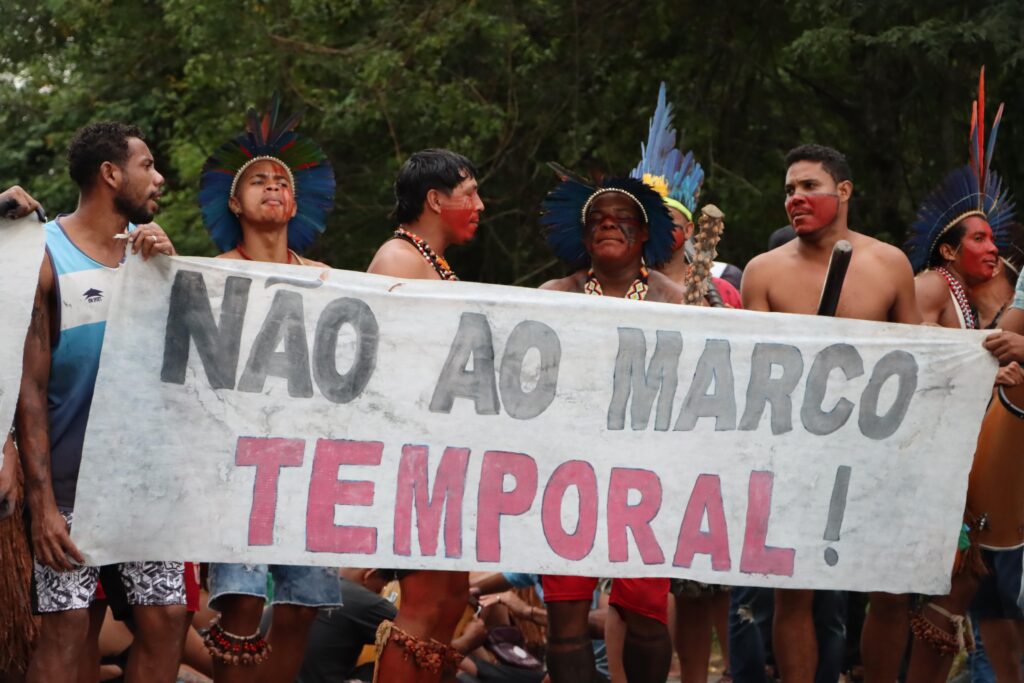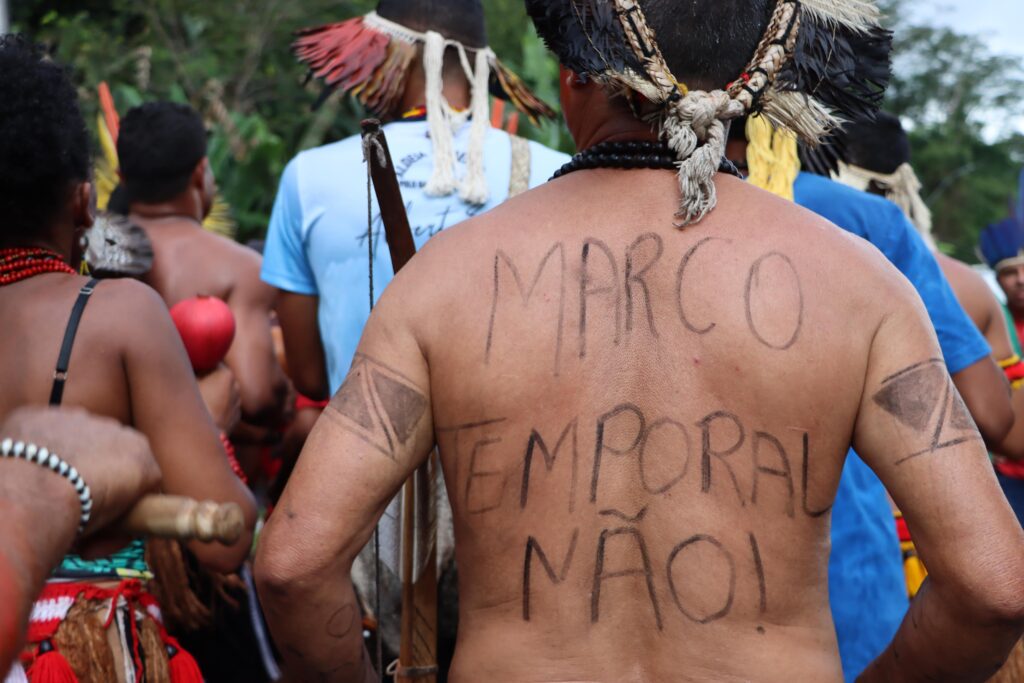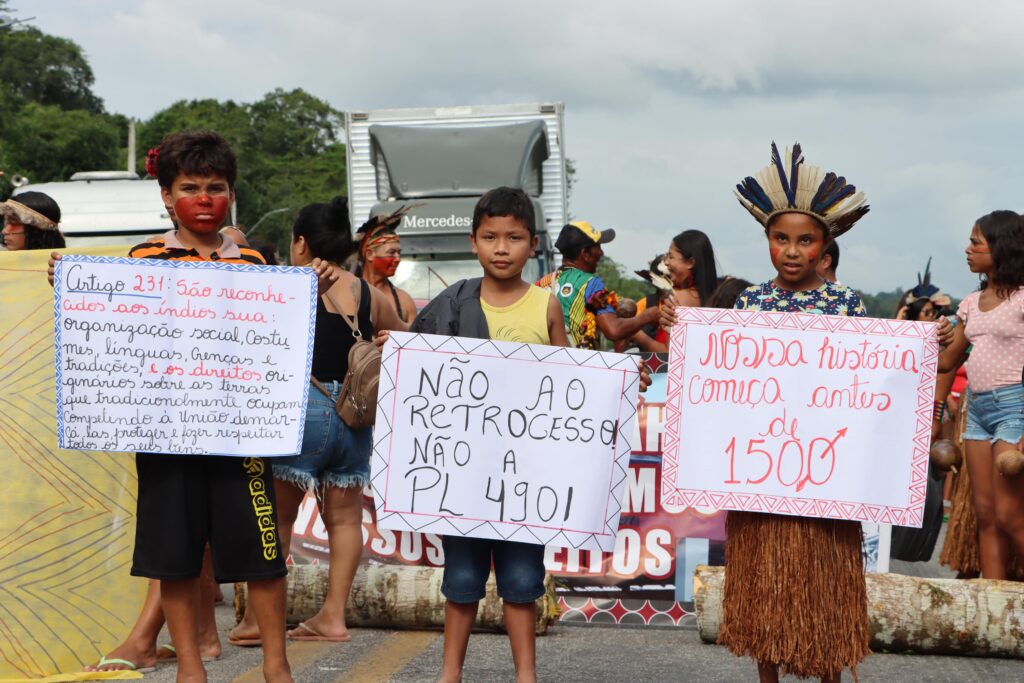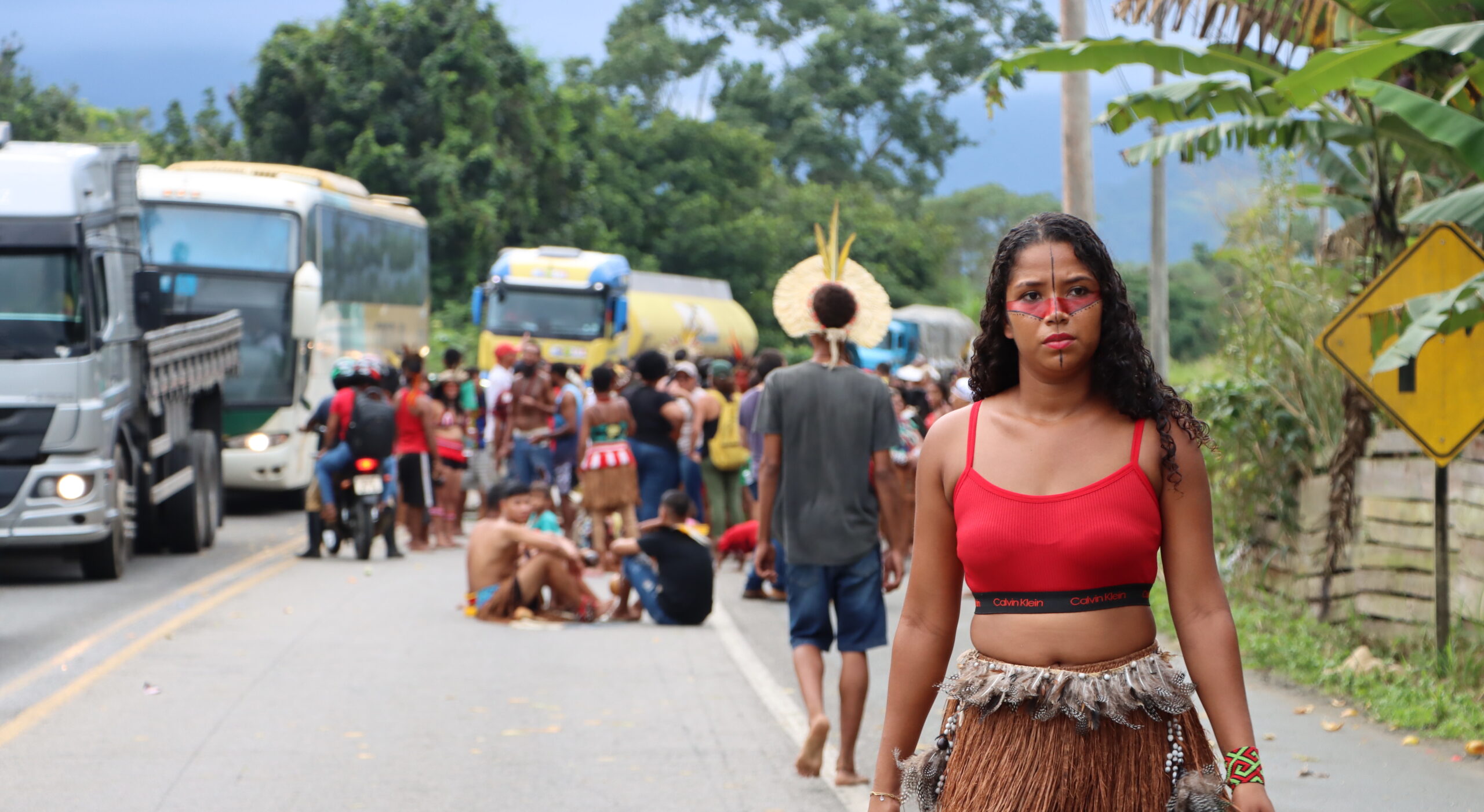Author: Olinda Tupinambá. Previously shared at iBahia
Leia em português
The journalist and filmmaker Olinda Tupinambá gives an overview on Brazilian politics affecting indigenous peoples, including how the “Marco Temporal” could impact indigenous rights and their territories.
The promulgation of the 1988 Constitution was the official milestone of Brazil’s redemocratization. It was with it that civil and political rights, collective and diffuse, were elevated here in Brazil to the status they should have in a modern state founded on democracy and justice. It was in this same constitution that the constituent deputies recognised indigenous rights in the current terms of the Brazilian legal system, adhering to the evolutionary line of recognition of indigenous rights, which begins in the Royal Charter of 30 July 1611, promulgated by Philip III:
“The gentiles are masters of their farms in the settlements, as they are in the highlands without being able to be taken from them, nor any harassment or injustice be done to them, nor may they be moved against their will from the captaincies and places that are ordered to them, except when they freely wish to do so.”

Image: Olinda Tupinambá, yawar.art.br
Very recently in the history of Brazil, in 2009, during the trial related to the indigenous territory Raposa Serra do Sol, the minister of the STF, Menezes Direito, brought the thesis of the Marco Temporal, to be applied exclusively in the Raposa Serra do Sol case, making up the 19 conditions in the process. The Marco Temporal, according to the Raposa Serra do Sol conditionings, established that, for that specific case, the demarcated lands should correspond to the area occupied by the Indigenous People on the date of the promulgation of the 1988 Constitution, and in the manner provided by Article 231 of the 1988 Federal Constitution, which states that:
“Indigenous people, their social organisation, customs, languages, beliefs and traditions, and the original rights over the lands they traditionally occupy are recognised, the Union being responsible for demarcating them and protecting and enforcing respect for all their assets”.

Image: Olinda Tupinambá, yawar.art.br
Since then, the condition of the Marco Temporal has been proving be a Trojan horse within the Brazilian legal system, since its forced reinterpretation, defended by interest groups opposed to the demarcation of Indigenous Lands, has been used to defend the broad thesis of the application of the Marco Temporal to these Lands, that is, the idea that all Indigenous People would only have the right to the lands under their possession on the date of the 1988 Constitution.
The thesis of the Marco Temporal, interpreted as if of broad application, is in conflict with the constitutional text which, in the same Article 231, establishes in one of its paragraphs: “The lands dealt with in this Article are inalienable and unavailable, and the rights over them, imprescriptible.”
Very recently, on May 30, the chamber approved PL 490, which incorporates the thesis of the Marco Temporal , and today, on June 7, the case of the indigenous land Ibirama La-Klãnõ, which belongs to the Xokleng, Kaingang and the Guarani, will be on the STF’s agenda. The Supreme Court will decide if the thesis of the Marco Temporal applies to this case and will be valid for other indigenous lands in Brazil, or if it refuses the application of the Marco Temporal and this thesis falls definitely to all other Indigenous Lands.

Image: Olinda Tupinambá, yawar.art.br
That is why this judgment is so emblematic for the traditional populations of our country. The thesis of the Marco Temporal disregards the struggle of the indigenous peoples and their original right over the lands they traditionally occupy, and puts at risk the physical integrity of these peoples.
All over the national territory, indigenous people are protesting. The indigenous and indigenist organisations consider that we are facing the biggest attack on indigenous rights since 1500, and affirm that they will not leave their territories. They affirm that they are not simply fighting for land in the sense of ownership of means of production, but also to maintain their peoples’ own way of life, their own ways of thinking, acting, maintaining their culture without imposition of forced change and guaranteeing the survival of future generations and the balance of life in these territories.
Your donation can have a positive impact on the world!
Subscribe to receive our Newsletter!
Find us also at Linkedin, Facebook, Twitter or Instagram
www.meli-bees.org
❤️


One Reply to “Light, Lavender and Action: “Marco Temporal” by Olinda Tupinambá”